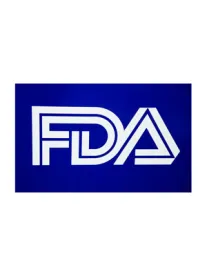In yet another farcical attempt to control the unregulated vaping industry, The FDA has issued a “warning letter” to JUUL accusing it of violating the FD&C act in its advertising by claiming it is a healthy alternative to cigarette smoking.
The letter, one of many issued to the big vape company, instructs JUUL to “immediately correct the violations that are referenced above, as well as violations that are the same as or similar to those stated above, and take any necessary actions to bring your tobacco products into compliance with the FD&C Act.”
The FDA presented the following evidence to support its ruling that JUUL was illegally marketing its e-cigarettes as safe products:
“A JUUL representative speaking with students at his presentation stated that JUUL ‘was much safer than cigarettes’ and that ‘FDA would approve it any day.’[1]
The JUUL representative speaking with students at his presentation called JUUL ‘totally safe.’[2]
The JUUL representative speaking with students at his presentation stated that a student ‘…should mention JUUL to his [nicotine-addicted] friend…because that’s a safer alternative than smoking cigarettes, and it would be better for the kid to use.’[3]
The JUUL representative speaking with students at his presentation stated, ‘FDA was about to come out and say it [JUUL] was 99% safer than cigarettes…and that…would happen very soon….’[4]
Letter from the CEO states: ‘[JUUL’s] simple and convenient system incorporates temperature regulation to heat nicotine liquid and deliver smokers the satisfaction that they want without the combustion and the harm associated with it.’ on JUUL’s website, juullabs.com.”
Yes, we know that JUUL fabricates facts in its public statements. We’ve known for a couple of years; but the FDA has done little to stop it.
Instead, it has issued several letters to JUUL to suggest it needs to change its practices regarding targeting children. For the most part, the FDA has been asking for voluntary compliance. The result and response from JUUL can be summarized in the “Letter from the CEO,” referenced above.
In that “CEO Letter” and interviews with the CEO, JUUL tries to publicly deny it ever targeted teens, and includes a more emphatically stated claim that its “safe alternative to smoking” is only targeted to adult smokers and people who already use nicotine, which surreptitiously includes all of the children referenced in literature about the vaping epidemic.
In the last year JUUL did make some progress on targeting teens:
They took away a couple flavors;
They apparently decreased advertising in teen social arenas; and,
They upped their public relations efforts to change the words they use to promote the product.
Why would JUUL do more? After months and months and months of investigation, the FDA still asks for very little. It is struggling with its role as a consumer protection agency related to e-cigarettes.
Instead of immediately implementing FDA product review to protect consumers, it has issued another toothless, and meaningless, letter to JUUL. The FDA continues to reference its commitment to prevent teen nicotine use, but has done very little, if anything, to protect everyone else—this despite the ever-growing “Body of Knowledge” that vaping is physically harmful.



 />i
/>i

